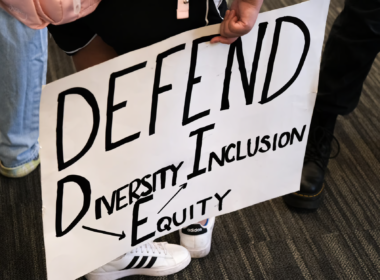An oft heard phrase is “I know my rights.” The question is do American citizens really know their rights? Do they know that those rights can disappear in an instant at the whim of the government? The Patriot Act, signed into law by President George W. Bush on October 26, 2001 is the most well-known of the documents designed to strip the American people of their rights at the government’s discretion.
The Patriot Act was offered to the American people as a way for the country to fight terrorism. It was pushed through using the shock and fear following the September 11, 2001 terrorist attacks as lubrication. The people were afraid and they wanted the government to do something. Thus the Patriot Act was born.
This document gives the government the right to detain a suspected person indefinitely without the benefit of a speedy trial, just on a suspicion. It gives the government the right to search the homes of Americans without a warrant. It gives the government the right to suspend the Bill of Rights until such a time as it is seen fit to assure the safety of the American public. Besides the Patriot Act, there are other, lesser known documents that allow a citizen’s rights to be stripped away. The Cybersecurity Bill gives the president authority over the internet. There are a number of presidential “directives” that give the president powers to change just about any part of the Constitution. In the months following 9/11 approximately thirty of these directives were signed by President Bush. They give the president power to take control over everything from the country’s money to the country’s food distribution. How many people have actually read those directives?
Knowing the rights of the American citizens is a good thing. Read the Constitution. Read the Bill of Rights. But citizens also should know the bills, laws, directives that might destroy those rights and take them away. It takes some research because the majority of these documents are not public knowledge. It takes trips to the library, hours of research on the internet. IT is still better than not knowing.
The First Amendment gives an American citizen the right to practice the religion of his or her choice. This includes Wiccan, Muslim, Pagan, and even devil worship. As long as a devote believer isn’t out sacrificing children and kittens then according to the United States Constitution, that person has the right to worship whatever deity he or she wants.
Unfortunately these fundamental rights are in jeopardy and have been since 2001 and the Patriot Act was passed. That act specifically says: To assist terror investigation, the government may monitor religious and political institutions without suspecting criminal activity.
An American citizen has the right to free speech. Anyone watching the news today will see that free speech is in danger. There is a great majority of people who don’t like the fact that preachers and politicians condemn lesbians, gays, bisexuals, and transgendered people. They say horrible things like they should all be killed or rounded up and put behind barbed wire. They have the right to say those things. They don’t have the right to act on those things, but they do have the right to say them. Just as LGBT people have the right to tell these preachers and politicians that what they are saying is wrong.
As an American, any and all citizens should have the right to a speedy trial. The Patriot Act may have made that right null and void by allowing the government to detain and individual indefinitely without a trial.
The First Amendment gives the people the right to assemble peacefully. On October 2, 2012, in Austin, Texas the Occupy Austin movement was ousted from its city hall encampment. Justification for the eviction was the fact that a good many indigents who normally allowed to camp overnight on the steps of city hall, were joining the Occupy Austin forces. The indigents were not respecting the city property. The trash began piling up, and the people going into the building were being harassed. Someone wiped feces on the door of city hall.
In light of these transgressions the police department decided to evict everyone. Although the Austin eviction was not as violent as some other cities it still caused dissent among those believing they had the right to assemble peacefully and the city officials who determined it was not a peaceful assembly.
The rights of the American people are slowly disappearing. That is why it is so very important for Americans to really know their rights. Read the Bill of Rights. Read the Constitution. Read the Patriot Act and compare it to the Constitution. There are also literally hundreds of other bills, laws, amendments and proclamations that are created by the government. Americans need to search out those documents and read them.
Besides the Bill of Rights there is another Act called the Civil Rights Act of 1964, as amended. This Act sought to end discrimination in several areas of life.
Title I allowed for people of all races to be allowed to vote.
Title II made it illegal to bar people of color from restaurants, hotels, movie theaters, and other public accommodations. Private clubs were exempt from the law.
Title III prohibited local governments from passing laws barring people of other races, color, religions from access to public accommodations.
Title IV was probably the most controversial of the Act. Title IV ended desegregation in public schools. It also allowed the Attorney General to file suit in order to make the desegregation happen.
Title V entitled the Civil Rights Commission to have additional powers. Title VI states that any entity that receives federal funds must not discriminate.
Title VII covers equal employment for all, and makes discrimination in the work place illegal on the basis of race, color, sex, national origin, or religion. Later on the discrimination based on sex was amended to include pregnancy and sexual harassment.
Title VIII provided for the compilation of voter registration data. Title IX made it easier to move cases concerning discrimination issues from state court to federal court. This was supposed to prevent people of color from being tried by an all-white jury.
Title X established a community relations division with the idea of being able to resolve discrimination issues without going to court.
Title XI established a fine of $1000 and or six months in jail as the most someone could be punished.
These are the basic rights of American citizens. The one that affects most citizens is Title VII, which covers employment rights. In the twenty-first century those rights are not violated as often as people may believe. Here are some examples of areas where a person may believe discrimination happens, but in fact, has not.
A woman works at a parts store. She has been employed there for approximately two years. Recently, she received a written disciplinary notice because of excessive absences. It is her second warning, if she gets one more she could be fired. The woman believes she is being treated unfairly because none of the men who have been absent received write ups. The woman believes she is being subjected to different terms and conditions than her co-workers. She knows her rights, she says to herself. She calls the company’s human resources department to make a complaint.
Quite often people say they know their rights. Do they really? In 1964, Lyndon B. Johnson, signed Title VII of the Civil Rights Act. This act gave the people the right to have and keep jobs no matter what their race, color, national origin, religion, or sex. The Age Discrimination in Employment Act gave men and women over the age of 40 the right to work. The American with Disabilities Act allowed a disabled person to work at a job he or she was qualified for, with or without an accommodation.
In the case of the woman at the parts store, human resources tells her that none of the male employees who work in her department have as many absences. In fact, they tell her, she has almost double the amount of each of her male co-workers. Human resources tells her that she can be written up for excessive absences, and if one or more of her male co-workers has a certain number of absences, than that co-worker will also receive a write up. They also tell her that all of the information on absences is in the company’s policies and procedures manual.
The most common mistake an employee makes when he or she believes they are a victim of discrimination is to not read the policies and procedures manual. Often that person will discover that a policy has been violated, and a few simple steps will correct the problem. The manual is the best place to get the information on what is and isn’t against company procedures.
If a male co-worker had the same amount, or near the same amount as the female, and she received a write up and he didn’t, then the issue needs to be investigated. It is possible she may be the victim of gender discrimination.
Texas is an at will state. This means that an employee can be terminated at any time for any reason that is not discriminatory. The employer does not have to give a reason why the employee is being terminated. Receiving a reason for termination is not a right. It is good management, but it is not a right.
In a second scenario, a Black employee is late getting to his station because another employee was asking him a work related question. When he does make it to his work station he finds his supervisor there going through paperwork. The supervisor is White.
Immediately, the White supervisor begins yelling at the Black employee. He calls the employee stupid, lazy, and questions his work ethics. It takes all of the employee’s will power to not lash out at his supervisor. After the supervisor leaves, the employee believes the supervisor treated him poorly because he is Black. He decides to make a complaint.
When he gets to human resources, he is told someone will talk to the supervisor about his behavior. It is well known company-wide that the supervisor has a short temper and stomps around yelling at all of his employees, not just the Black ones. The demographics of the company also show that more than 50 percent of the work force is Black.
It is unlikely the employee has been the victim of discrimination, but more likely he has been verbally and possibly emotionally abused by a bad manager. Being a bad boss is not against the law.
If the supervisor had used racial slurs while he was yelling at the employee then it could be considered discrimination. Or if he only yelled at the Black employees, and not the other races then the situation would bear looking into.
It is the obligation of every American citizen to not only know his or her rights, but to know the circumstances where those rights can be taken away.











